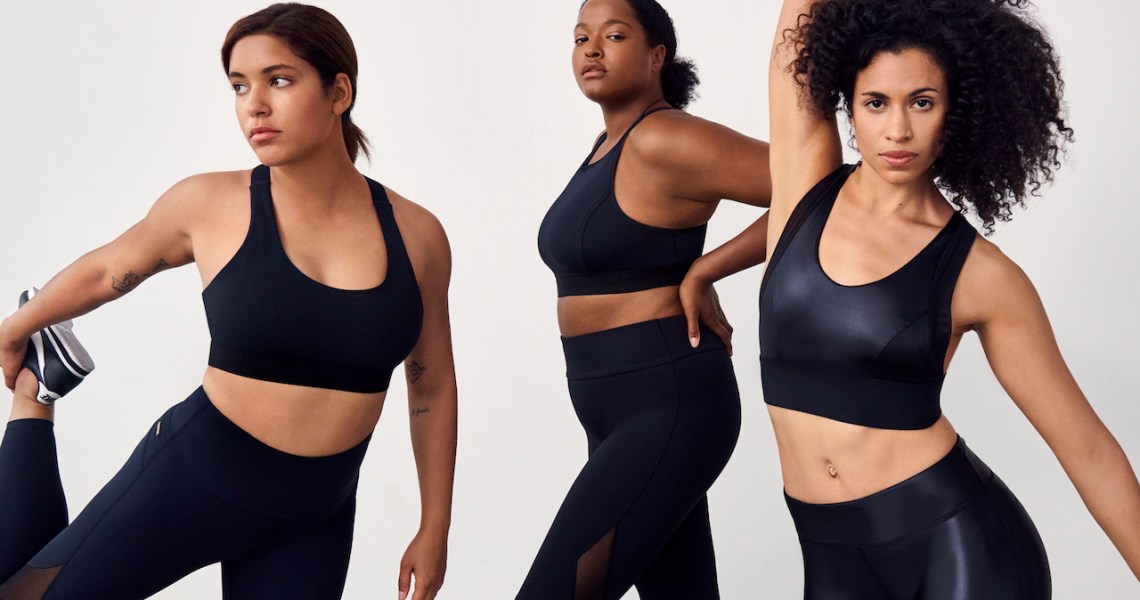Fashion brands from American Eagle to Athleta have been adding extended sizing to their larger collections in the name of size inclusivity. But many brands have yet to go there, with some blaming the cost. Five-year-old activewear brand Alala confirmed that making the transition is, indeed, costly.
The brand announced on Wednesday a new 11-piece collection available for the first time in sizes up to 3X — prior, the brand only offered sizes XS-XL. Denise Lee, founder of Alala, said there’s been demand for more sizes since Alala launched. Until early summer 2018, she felt the business wasn’t at a point where it could afford or support a move into extended sizing.
In total, the new products are costing the brand 30%-40% more to make, said Lee. Ensuring a good fit meant developing patterns for sizes 1X-3X from scratch.
“If you’re going from an XS to a small, the shape of the body kind of stays the same; you just get a little wider all around. But going from like a large or an XL to a 1X or 3X, the body just changes in so many other different ways. We didn’t feel comfortable putting out a line that just added an inch to the waist and a half inch to [another area] and made the legs 2 inches longer,” said Lee.
The concept of building fits from scratch isn’t uncommon. Athleta took a similar approach on its recent collection, developing sizes from a 2X size block rather than a small or large. Not all brands take this approach, though — mainly because it’s expensive and time consuming.
“It’s a very large investment to do it. To put it out there requires a lot of resources and time. From a business standpoint, I understand chasing that. If they don’t, there will be backlash. The customer gets excited about the collection, takes a look at it, and they’re disappointed with the sizing and offering,” said Cynthia Vincent, CFDA designer and founder of plus-size brand Bacaal.
Alala made new patterns in a size 1X for every style in the new collection, as well as in sizes 2X and 3X for most styles, equating to between 50 and 60 samples in total. Each sample costs the brand around $200 to make, immediately setting the brand back as much as $12,000 just in samples. Once the samples were made, the brand worked closely with a fit model to nail down the 1X pattern. That was another substantial cost. Fit models range from $200 to $300 an hour. The brand made hundreds of corrections to each piece in the collection, doing over 60 hours of fittings. On the high end, that amounted to another $18,000-plus invested.
Ad position: web_incontent_pos1
On the production side, there are more costs involved, as well, with factories charging the brand more to produce the larger sizes.
“It takes more time to do a 3X type than a small. It takes more thread. It’s just a different process for them. All of those things have added up,” Lee said.
But even with more fabric being used (another cost for the brand) and factories jacking up prices, Alala didn’t want to bump up the cost of the collection for those larger sizes and make the line too costly for potential customers.
“We always want this to be part of our offering moving forward. We are confident that, as the business grows, we can amortize those costs over time,” Lee said. Moving forward, the brand plans to continue investing in extended sizing and adding more products to the collection to fit as many customers as possible.




